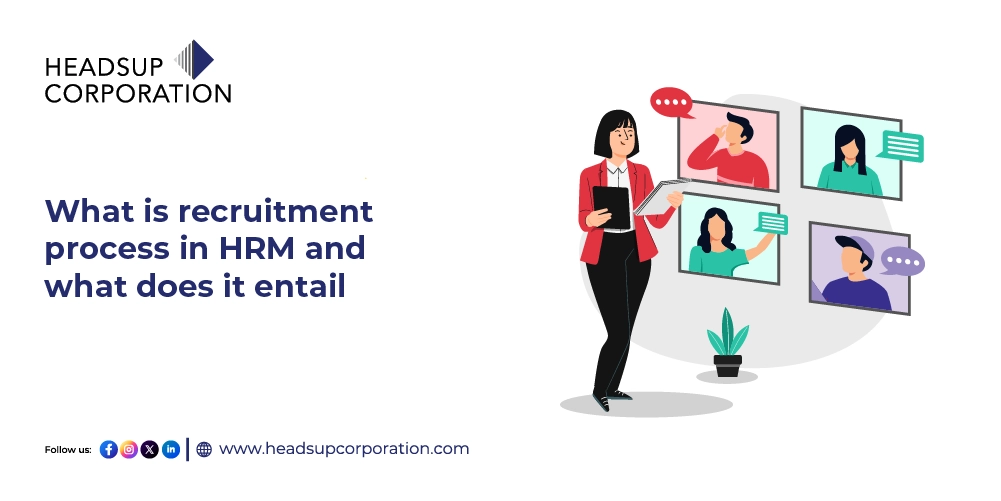
Here’s Why Most Small Businesses Fail To Scale Up
Millions of ideas. Thousands of people chasing them. Some have the courage to pursue and build a business out of it. However, unfortunately, not many are able to sustain them. Why do they fail, you ask? Some ideas just fail, as they looked better on the vision board. Some don’t get enough financial support. Some are not able to get the necessary guidance and mentorship at the right time. Some lose consistency.

But most startups fail because of poor talent strategies and/or lack of attention on employees. It is the people of the company, their talent and potential that can bring an idea to life. Yet most startup founders take the HR aspect in their business too lightly. If you are a startup founder and thinking but I am just getting started, HR policies are not for us and only for large companies.
Let us tell you how you are mistaken. Here are some of the HR aspects that if not given the due attention could take your business down the drain:
1. Unclear job descriptions
It is no news that ambiguity kills performance. Yes, it is true that in a startup, the talent needs to wear multiple hats, but still a little structure is critical for clarity. Confusing and conflicting job roles cause anxiety and create conflict causing employees to feel demotivated and devalued. For best outcomes and for people to perform upto business expectations, the job descriptions for each unique role need to be created. The process of creating these job descriptions also helps the leadership team to get more clarity about the diverse critical roles and key areas of work crucial for their business growth. Additionally, it also helps the potential and current employees have a clear direction and awareness of their job responsibilities.

2. Lack of internal communication
The founders have too much on their plate. Employees are also busy working on their key deliverables. Absence of a talent manager also leads to lack of opportunities for the leaders and employees to connect. The employees are not able to share all their challenges, even if they do, founders don’t always have the bandwidth to manage the people related issues. The leaders often don’t realise the need to have a dedicated person or team (depending on the no. of employees) looking after people and acting as a partner to both talent and business. Hence, internal communication is compromised and employees feel disconnected from the business.

If you like this, you maybe interested to read: 5 Key Discussions That Never Leave The Boardroom But Should
3. Missing employer brand
The founders are so occupied in building the product or the solution, they forget to focus on the brand. The values their brand stands for, the culture that defines them, and most importantly understanding how their potential and current employees perceive their brand. Every startup that aims to scale up and touch greater heights must have a dedicated person or team of individuals actively working on building and improving employer brands. It is an ongoing activity that involves getting the brand out there in the job market.

4. Hiring the wrong candidates
The different aspects we discussed above like unclear job description and absence of employer brand, subsequently leads to wrong hires. The mismatch between company and candidates can be bridged by external intervention only. A talent manager, recruiter, or a talent consultant has to drive the entire recruitment piece for startups to help them find the best pool of candidates most suited for their business.

5. Absence of a performance management system
As startup starts to grow, it does have a broad vision, but most often the five year plan is not broken down to meaningful and attainable goals. The business goals are not aligned with the individual KPIs. The performance and the progress towards bigger rocks is not tracked. The chances of realising where the actions might be going wrong and course correcting are also lost. Eventually, creating chaos in the business system. In the end, founders are left wondering, where did we go wrong and it is too late to revive or a more costly affair. The founders need to establish a more robust performance management system and a stakeholder to drive the entire process.

Also Read: Implementing OKRs: A Guide To Drive A Performance Culture
6. Zero attention on employees who quit or retire
At the time of joining, the leadership wants to do everything that they can to ensure that they are providing the best onboarding experience and get the people started. But resignation and separation, they don’t handle it so well. Let us break the news to all founders: This is the most important stage in the entire employee lifecycle. To begin with: How do you want to leave things with the employees leaving your company, especially if they are high potentials? The engagement and involvement shouldn’t stop. They should feel like part of the system till the very last day. Moving ahead, do you care to ask why they want to leave? Many times there is not just one right answer. The employees who are leaving can give the leadership a great amount of insights on their current system and help them understand the gaps. Taking these insights in consideration, subsequent actions can be taken to make improvements and reduce potential exits.

Great news. All of these aspects are not that much of a costly investment if done at the right time. Don’t waste time. Pay attention to these critical HR aspects. Seek guidance from experts and consultants wherever necessary. Take the first step and reach out to us: ………..






